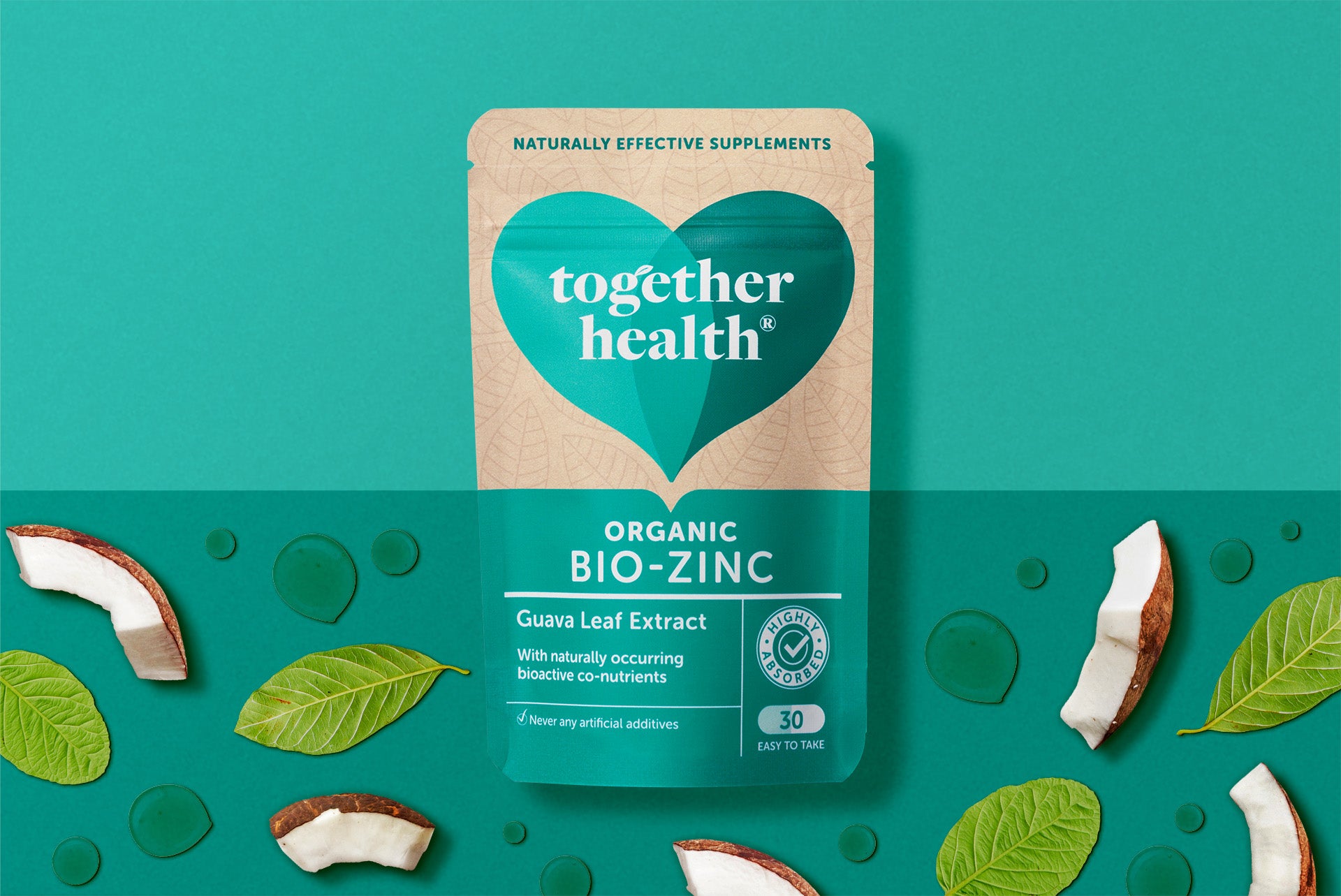
Spring Wellness: Boosting Your Immune System for the Season with Together Health
How Often Do You Make It Through Spring Without Getting Sick?
As the days grow warmer and longer, our immune system still faces seasonal challenges. Spring allergies, fluctuating temperatures, and increased outdoor activities can all put stress on our health. One of the most common questions we hear is: How can I stay healthy this spring?
In this comprehensive guide, we’ll explore strategies to support your immune health, focusing on nutrition and lifestyle choices. You’ll gain insights into the latest research on immunity, leaving you with a well-rounded plan to stay healthy and recover more quickly if illness strikes.
Understanding Your Immune System
Before we dive into solutions, let’s take a quick look at how the immune system functions. When you’re under the weather, you may feel fatigued, unproductive, and generally out of sync. A well-functioning immune system identifies harmful invaders like bacteria and viruses and initiates an appropriate response to neutralize them.
Your body’s defense system operates in two key stages:
• Immediate response team: Generalist cells that act quickly to contain threats.
• Specialist forces: T and B cells that precisely target infections, eliminating them and storing information for faster recovery next time.
Without proper care, your immune defenses may weaken, increasing vulnerability to seasonal illnesses. So, what practical steps can we take to keep it running smoothly?
Managing Stress for a Stronger Immune System
Spring often brings busier schedules and social gatherings, which can increase stress levels. Chronic stress weakens the immune system, making it easier for infections to take hold. A meta-analysis of over 300 studies published in 2004 confirmed that prolonged stress negatively impacts immunity. While external pressures aren’t always avoidable, introducing mindful practices—such as meditation, deep breathing, or yoga—can help regulate the body’s stress response and improve overall well-being.
Finding the Right Balance with Exercise
Spring is the perfect time to embrace outdoor activities. Moderate physical activity has been shown to reduce the incidence of illness, as highlighted in a 2007 study. However, overdoing it—especially with high-intensity endurance training—can lead to temporary immune suppression. The key is balance: aim for regular movement without pushing yourself into exhaustion.
![]()

![]()
![]()
The Power of Sleep for Immunity
With longer daylight hours, it’s easy to skimp on sleep, but rest is one of the most underrated tools for immune resilience. A 2011 study found that quality sleep strengthens immune function by supporting T cell activity and boosting the body’s ability to fight infections. Adults should target 7–9 hours per night to ensure their defenses remain strong throughout the season.
Nutrition: The Foundation of Immune Health
A well-rounded diet provides the building blocks for a robust immune response. Here’s how key nutrients contribute to immunity:
Vitamin D
Essential for regulating immune function, vitamin D deficiency has been linked to an increased risk of respiratory infections. A 2017 meta-analysis found that adequate vitamin D levels reduced the likelihood of acute respiratory infections by up to 50% in those with deficiencies. To maintain optimal levels, spend time outdoors, include vitamin D-rich foods in your diet, or consider a high-quality supplement.
Vitamin C
This well-known immune supporter may not prevent colds outright but can help speed up recovery. A 2013 review of clinical research spanning decades found that daily vitamin C intake reduced cold duration by approximately 8% in adults and 14% in children. Fresh fruits like citrus, strawberries, and kiwi, along with vegetables like bell peppers and leafy greens, are great sources of vitamin C.

Zinc
Zinc is integral to immune function, playing a role in cellular defense and antiviral responses. Research suggests that taking zinc supplements at the first sign of illness may shorten the duration of colds. In particular, a 2013 review noted that early zinc intake helped individuals recover more quickly from the common cold. Dietary sources include red meat, poultry, legumes, seeds, and whole grains.
Selenium
This trace mineral supports immune defenses and helps moderate inflammation. Research indicates that selenium deficiency can increase susceptibility to viral infections. One of the richest sources is Brazil nuts—just one or two per day can help maintain optimal selenium levels. Other sources include seafood, meat, and whole grains.
Probiotics
A healthy gut microbiome is closely linked to immune strength. Studies have shown that probiotics can reduce the severity and duration of colds. A 2006 study found that probiotic supplementation shortened the length of cold symptoms by nearly two days. Fermented foods like yogurt, kefir, sauerkraut, and kombucha provide natural probiotic benefits.

Functional Mushrooms
Mushrooms such as reishi, shiitake, and lion’s mane contain beta-glucans, compounds that activate immune cells. Research suggests that beta-glucans help support immune function and may reduce the frequency of respiratory infections. Including these functional mushrooms in your diet or supplementing with a high-quality extract can provide immune-boosting benefits.
Summary: Key Nutrients and Their Benefits
|
Nutrient |
Immune Benefit |
Food Sources |
|
Vitamin D |
Supports immune regulation and reduces respiratory infection risk |
Sunlight, fatty fish, egg yolks, fortified dairy, mushrooms |
|
Vitamin C |
Helps shorten colds and reduce severity |
Citrus fruits, berries, peppers, leafy greens |
|
Zinc |
Aids immune cell growth, has antiviral properties |
Meat, poultry, beans, nuts, seeds |
|
Selenium |
Supports antibody production and reduces viral susceptibility |
Brazil nuts, seafood, meat |
|
Probiotics |
Helps maintain gut-immune balance |
Yogurt, kefir, fermented foods |
|
Functional Mushrooms |
Activates immune defenses and reduces respiratory infections |
Reishi, Shiitake, Maitake, Lion’s Mane |
Final Thoughts
Building a resilient immune system takes a holistic approach. By managing stress, maintaining an active lifestyle, prioritizing sleep, and ensuring a nutrient-rich diet, you can enhance your body’s natural defenses. Whether it’s vitamin D, zinc, probiotics, or functional mushrooms, small yet consistent efforts can make a significant impact on your spring wellness.
Take charge of your health this season and embrace habits that keep you feeling your best as nature comes back to life.
Sources:
https://www.apa.org/pubs/journals/releases/bul-1304601.pdf
https://journals.physiology.org/doi/full/10.1152/japplphysiol.00008.2007
https://pmc.ncbi.nlm.nih.gov/articles/PMC3256323/
https://www.bmj.com/content/356/bmj.i6583
https://pubmed.ncbi.nlm.nih.gov/23440782/
https://pubmed.ncbi.nlm.nih.gov/23775705/
https://pubmed.ncbi.nlm.nih.gov/31305906/
https://pubmed.ncbi.nlm.nih.gov/25593145/
https://pubmed.ncbi.nlm.nih.gov/16844267/
https://pubmed.ncbi.nlm.nih.gov/19651563/
https://pubmed.ncbi.nlm.nih.gov/33876798/


